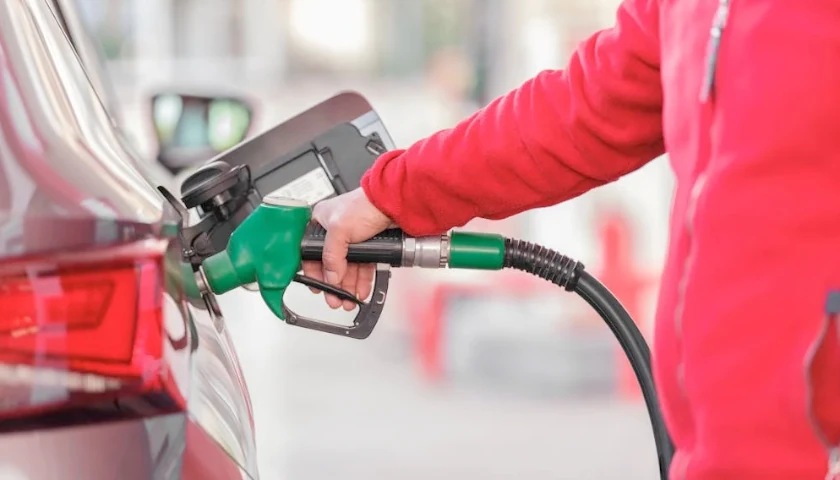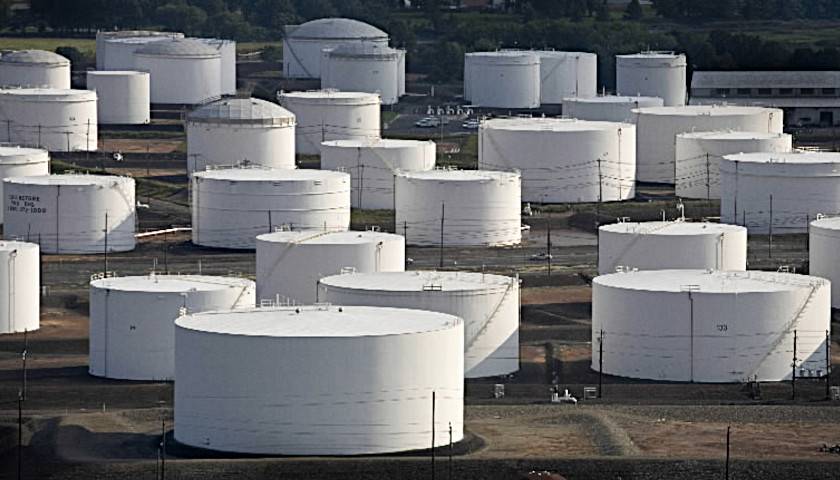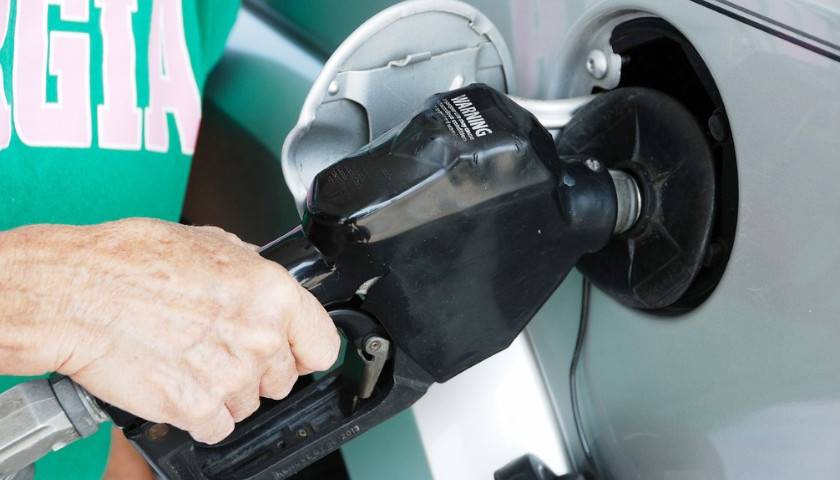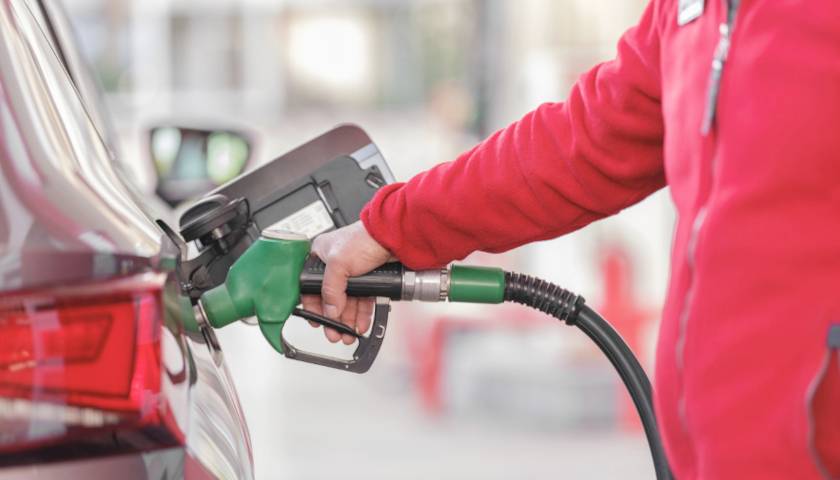We’ve all heard it: “You can’t make somethin’ out of nothin’.” Or so it would seem, though president elect Donald J. Trump appears destined to try if his plan to create new American cities out of currently mostly barren federal lands ever comes to fruition.
Read MoreTag: gas prices
Biden Admin Contracts 1 Million Barrels from Emergency Gasoline Stockpile to ‘Lower Prices’ Ahead of July 4th
The Biden administration is selling off a million barrels of gasoline from an emergency reserve in a deliberate effort to cut prices ahead of the upcoming holiday weekend.
The Department of Energy (DOE) announced that it has awarded contracts to five energy companies to purchase the barrels the administration is releasing from the Northeast Gasoline Supply Reserve (NGSR), which is part of the federal Strategic Petroleum Reserve (SPR) system. The NGSR releases are intended to “help lower gas prices ahead of the Fourth of July holiday,” according to DOE.
Read MoreRelease from Gasoline Reserve Raises Doubts Biden will Replenish the Strategic Petroleum Reserve
The Biden Administration announced Tuesday that it would release 42 million gallons of gasoline from the Northeast Gasoline Supply Reserve. The release, the Department of Energy explained, is “strategically timed and structured to maximize its impact on gas prices.” This will, according to the DOE, help lower prices at the pump during the summer months when prices tend to go up along with demand.
Read MoreCalifornia Considers Rules That Could Push Gas Prices up an Additional $1.11/Gallon by 2026
California gas prices could rise by at least $1.11 per gallon by 2026 if the California Air Resources Board adopts amendments to its low carbon fuel standard program, CARB says. The LCFS amendments proposed at the end of 2023 would phase-out credits for turning manure into renewable natural gas, ending that business, and add jet fuel to LCFS purview, increasing flying costs for every flight that starts or ends in California even if the fuel was purchased elsewhere. Because so much of America’s imports come in through California, the LCFS amendments would raise the costs of goods for every American.
LCFS uses a system of credits and deficits to reward or punish producers that make fuel better or worse than the rising “clean” standard.” Current LCFS guidelines call for a 20% reduction in carbon intensity by 2030 compared to 2010, while the proposed amendments call for a 90% reduction by 2045, including significant step-downs starting in 2025 that would result in major fuel cost increases starting that year.
Read MoreBiden White House Keeps Telling Whoppers and Even the Legacy Media has Started to Notice
President Joe Biden has long had a history of telling bizarre, incomprehensible narratives while attempting to relate to his audiences. He has also, repeatedly, reiterated long-debunked stories such as the nature of his son’s death, his alleged arrest as a civil rights marcher and even his claim to have been a truck driver.
But he and the White House have further taken to regularly misrepresenting statistics when discussing the performance of the U.S. economy, an issue on which he faces considerable scrutiny from the public and scores poorly in many polls.
Read MoreElevated Gas Prices Poised to Rise More This Summer
Gas prices have been elevated in recent months heading into summer, when prices are expected to rise even more.
According to AAA, the average national price for a gallon of regular unleaded gasoline is $3.65 per gallon, up from $3.59 a month ago. The prices have fluctuated in recent days and are lower than the all-time high of $5.02 in the summer of 2022. However, prices overall have risen significantly this year and are on pace to rise more in the summer months.
Read MoreAmericans Face Rising Gas Prices Again
Gas prices are steadily rising around the U.S. again, leaving many cash-strapped Americans struggling to keep up.
According to AAA, the current average price for a gallon of regular-grade gas nationally is $3.63. That is a sharp increase from $3.39 just one month ago. Crude oil prices have risen steadily over the last 30 days, from about $77 per barrel to $85 per barrel.
Read MoreBiden Admin Reportedly Set to Greenlight Rule Change That Could Spike Gas Prices — But Not Until After the Election
The Biden administration is expected to ease seasonal restrictions on ethanol-gasoline blends but has delayed the change until after the 2024 election to avoid a price spike, according to Reuters.
The rule change stems from a 2022 request from the governors of Illinois, Iowa, Minnesota, Missouri, Nebraska, Ohio, South Dakota and Wisconsin to allow the sale of gasoline with 15% ethanol year-round, known as E15 gasoline, lifting current seasonal restrictions that aim to reduce smog in the summer months, according to Reuters. The Environmental Protection Agency (EPA) had originally set an effective date of April 28, 2024, for the changes when the agency sent the proposal to the White House in December, but that is now expected to be pushed back to 2025.
Read More






